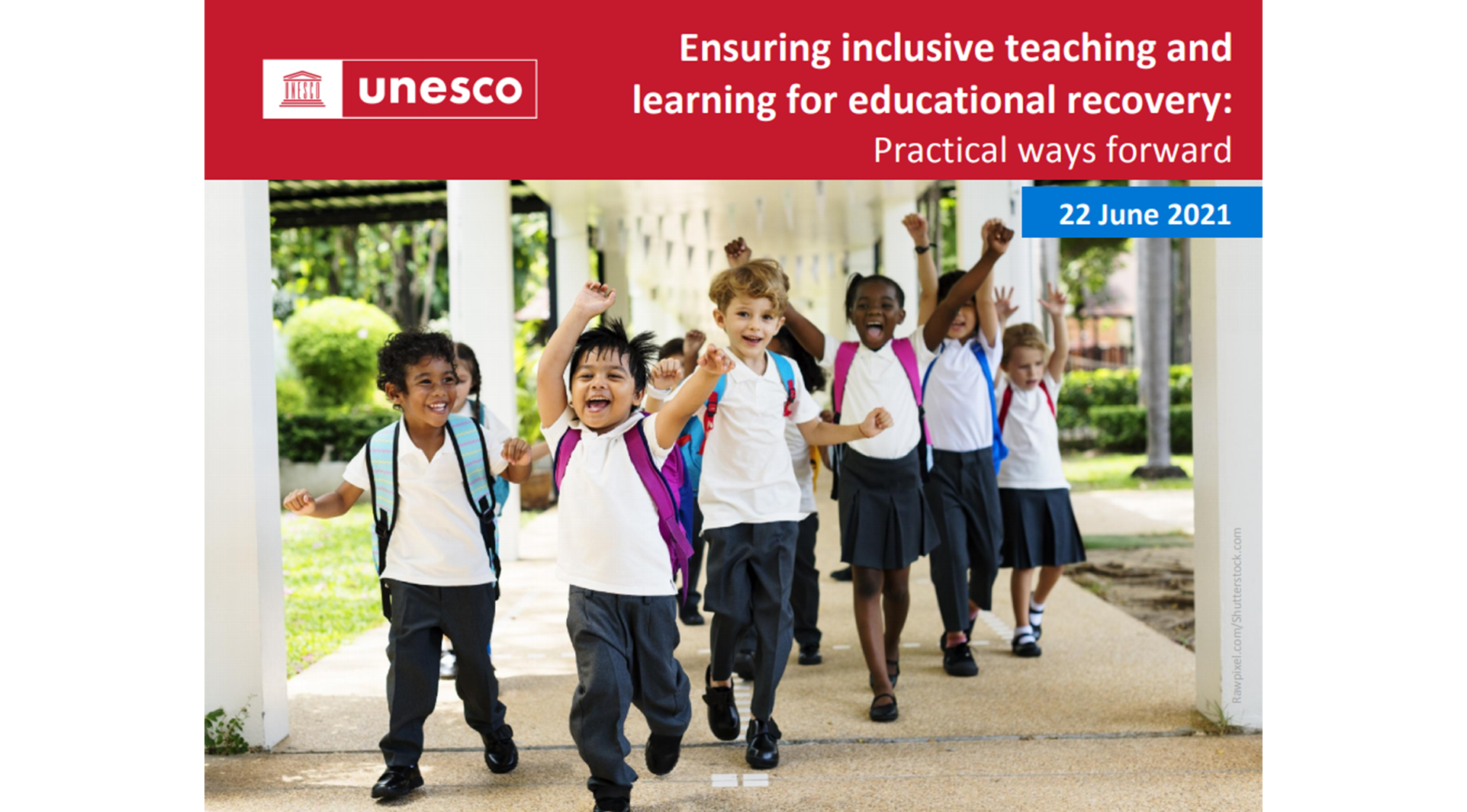22 June 2021 - UNESCO, IBE & University of Manchester to Host "Ensuring inclusive teaching and learning for educational recovery: Practical ways forward"
On Tuesday, 22 June 2021, from 2-4pm (CEST), UNESCO, the University of Manchester and UNESCO’s International Bureau of Education (IBE) will co-host, “Ensuring inclusive teaching and learning for educational recovery: Practical ways forward.”
Background
Across the world, teachers are facing unprecedented challenges as they seek to find ways of ensuring quality education for all their students within the context of the COVID-19 pandemic. Whilst the nature of these challenges varies depending on the country or location, a common concern is with those students who are known to be vulnerable to marginalization or exclusion, such as those from the poorest households, refugees and those in conflict situations, ethnic and linguistic minorities and indigenous backgrounds, and children with disabilities. UNESCO estimates that girls aged 12-17 are at particular risk of dropping out of school in low and lower-middle income countries, whereas boys are more at risk in upper-middle and high-income countries.
The event follows that efforts to ensure educational transformation in light of the pandemic must be based upon the principles of inclusion and equity. These principles are summed up in UNESCO’s Guide for Ensuring Inclusion and Equity in Education, as follows: ‘every learner matters and matters equally’. This webinar is specifically concerned with what this means for teaching and learning practices.
View the Concept Note in English, Spanish, and French.
Purpose of the webinar
The focus of this international webinar is on what needs to be done to improve teaching and learning in an inclusive way and on the contributions of teachers as schools reopen. It will do this by showcasing and analyzing examples of promising innovations from different parts of the world.
This relates to and builds on the Framework for reopening schools, developed by several agencies, including UNESCO, in April 2020, and other guidance materials on school reopening. However, it focuses more specifically on the practice of teachers and how they can be supported to find ways of ensuring that marginalized and vulnerable learners are included in schools, and to adapt content, pedagogies and assessment to be truly inclusive.
Webinar program
The webinar will provide a platform for the sharing of experiences amongst teachers and other stakeholders. In particular, it will focus on three questions:
- What teaching practices can ensure that all children and young people are included in
schools as they reopen? - How can teachers be supported and empowered to develop these practices?
- What are the challenges faced by teachers and school leaders, and how can they be
overcome?
The concern with inclusive teaching and learning and the practice of teachers is in line with the recommendation of the UNESCO 2020 Global Education Monitoring Report on inclusion and education to ‘prepare, empower and motivate the education workforce: All teachers should be prepared to teach all students’. It also echoes the UNESCO report Education in a post COVID world: Nine ideas for public action, which states that ‘teachers need to be more recognized and more highly valued; they are essential participants in defining the futures of education’.
Target audiences
The target audiences for this webinar are teachers, teacher educators, policy makers, curriculum developers and pedagogical advisers, as well as other key stakeholders. This includes senior officials and managers of Ministries of Education directly responsible for implementing and managing education programmes, as well as non-governmental organizations, bilateral partners, foundations and others supporting this work. However, it is anticipated that the webinar will have a broader reach, as participants spread key messages to educators, parents and families, encouraging them to support efforts to ensure inclusive educational recovery.
Technical platform and interpretation
The webinar will be held in English, French and Spanish, with simultaneous interpretation into international sign language. It will be conducted through the Zoom webinar platform. Link to be provided.

